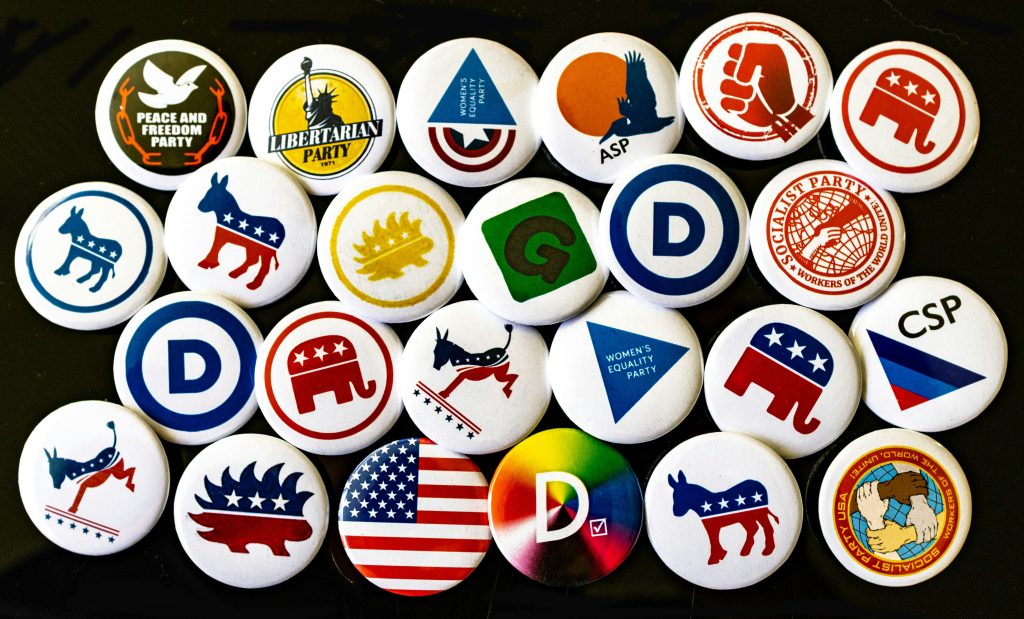A Heartfelt Moment: Tim Walz’s Son Shines at the Democratic National Convention
In a poignant display of familial love and pride, Tim Walz’s acceptance of the Democratic vice presidential nomination took an emotional turn as his son, Gus, captured the hearts of viewers across the nation. While the elder Walz delivered his speech without explicitly addressing disability, the presence of his 17-year-old son, who has a nonverbal learning disorder, highlighted a critical conversation about the challenges faced by millions of children with similar conditions.
As Tim Walz stood before the audience at the Democratic National Convention, the unbreakable bond between father and son became an unexpected focal point. Gus, struggling with a nonverbal learning disorder, represented not just himself but also the nearly three million North American children grappling with this learning disability. This moment resonated deeply, as it underscored the need for advocacy and understanding towards individuals who navigate life differently.
The convention, which is often marked by political rhetoric, transformed into a platform for vulnerability and connection, as Walz’s speech became a backdrop for a father-son moment that many viewers found relatable and inspiring. The display of support from the audience as Gus beamed with pride was a testament to the power of love in overcoming adversity. It evoked a sense of hope among families of children with disabilities, who often feel unheard in the political discourse.
Despite the absence of specific mention of disability in his speech, the implications for advocacy were clear. The question loomed large: if the Harris-Walz ticket were to succeed, would there finally be a strong voice for parents of children who are different in the White House? This moment could signify a turning point where the struggles of families with children who have learning disabilities are brought to the forefront of political conversation.
While the convention aimed to showcase political agendas, it inadvertently highlighted the importance of emotional connection and advocacy for marginalized groups. Critics and supporters alike noted the significance of this familial moment, sparking discussions around the visibility of disabilities in political platforms. The emotional depth displayed by both Tim and Gus Walz challenged the often impersonal nature of political events, reminding viewers that behind every policy discussion are real lives and real challenges.
The event also attracted controversy, as some figures in the media faced backlash for their insensitive remarks regarding Gus’s behavior. This reaction illuminated the ongoing societal stigma surrounding learning disabilities, emphasizing the need for greater awareness and understanding. As the conversation around the Walz family continues, it is crucial for advocates to harness this moment to foster dialogue about the experiences of those with learning disorders and to push for policies that support their needs.
In conclusion, the Democratic National Convention served not only as a platform for political aspirations but also as a poignant reminder of the human stories that underpin these aspirations. The Walz family’s experience echoed the struggles of countless families across the nation, emphasizing the necessity for advocacy, understanding, and love. As the nation reflects on the implications of this moment, it is hoped that it will lead to a future where the voices of children with disabilities are amplified and their needs addressed within the political arena.
Tags: disability advocacy, family support, nonverbal learning disorder, Political Representation, Tim Walz son Gus, walz speech
Maya Harris Takes Center Stage at DNC, Championing Sister Kamala’s 2024 Presidential Bid
In a powerful display of familial support, Maya Harris, known for her impressive legal and political career, took to the stage at the Democratic National Convention (DNC) to advocate for her sister, Vice President Kamala Harris, as she gears up for the 2024 presidential election. With a career that parallels that of her sister, Maya has established herself as a prominent figure in the political landscape, previously serving as a senior policy adviser for Hillary Clinton’s 2016 campaign.
As the DNC unfolded, Maya’s presence was electrifying, capturing the attention of attendees and viewers alike. Her speech highlighted not only her deep admiration for Kamala but also the values and dedication that have shaped their family’s journey in public service. Maya recounted heartfelt stories from their childhood, illustrating the bond that fuels their commitment to serve their communities and nation.
“My sister has always been a trailblazer, breaking barriers and standing up for what is right,” Maya stated, her voice resonating with emotion. She emphasized Kamala’s dedication to justice, equality, and the empowerment of marginalized voices, which are critical themes for the upcoming election. Maya’s endorsement comes at a pivotal moment as Kamala Harris officially secures the Democratic presidential nomination, positioning her as a formidable candidate against potential opponents.
The DNC not only served as a platform for Kamala’s nomination but also spotlighted the importance of family in politics. Maya’s unexpected appearance was a testament to the strength of their sisterly bond and the shared vision they hold for America’s future. As Maya took the stage, the atmosphere was charged with enthusiasm, with delegates and supporters rallying around the Harris family.
Maya’s career has been marked by significant achievements in law and policy, making her a credible voice in the political arena. Her insights into the political process and advocacy for social justice resonate with many voters who are eager for change. As an attorney and advocate, she has worked tirelessly on issues such as women’s rights, education reform, and health care access, mirroring her sister’s commitment to these critical areas.
The DNC provided a glimpse into the Harris family’s legacy of leadership and public service. With Kamala’s historic role as the first female Vice President of the United States and the first woman of Black and South Asian descent to hold the position, the support from family members like Maya is invaluable as they navigate the complexities of a national election.
As the country prepares for the 2024 election, the Harris sisters’ dynamic relationship offers a refreshing narrative of unity, strength, and resilience. Maya’s compelling speech not only reinforced her sister’s qualifications but also galvanized supporters who believe in the promise of progressive change. With the election on the horizon, the Harris family stands poised to make history once again, inspiring a new generation of leaders and voters to engage in the democratic process.
In conclusion, Maya Harris’s passionate support for Kamala’s presidential campaign exemplifies the power of family in politics and the importance of shared values in public service. As the election approaches, the focus will undoubtedly shift to how these two influential women will shape the future of America, continuing their legacy of advocacy and leadership.
Tags: 2024 election, DNC, family support, Kamala Harris, Maya Harris
Maya Harris Rallies Support for Kamala Harris at Democratic National Convention
In a compelling display of familial support, Maya Harris took to the stage at the Democratic National Convention, held in Chicago, to champion her sister, Vice President Kamala Harris. A seasoned lawyer and a former senior policy adviser for Hillary Clinton during the 2016 presidential campaign, Maya’s powerful address on the final night resonated with attendees and viewers alike. As the convention reached its crescendo, Maya articulated the values and vision that her sister embodies, making a heartfelt case for Kamala’s candidacy in the upcoming 2024 presidential race.
Maya’s speech opened with personal anecdotes, reflecting on their upbringing and the lessons learned from their parents—immigrants who instilled in them the importance of resilience, justice, and public service. “My sister is not just a candidate; she is a fighter for the people, a voice for the voiceless,” Maya declared, captivating the audience with her emotional appeal.
Throughout her address, Maya underscored Kamala’s commitment to equality, healthcare, and education, emphasizing that her sister’s policies are grounded in the experiences of everyday Americans. “Kamala understands the struggles that families face because she has lived it,” she stated, drawing applause from the crowd.
As the convention progressed, the excitement for Kamala’s official nomination grew palpable. Maya’s presence was not only a testament to their close-knit relationship but also a strategic move to humanize the candidate to voters who may have questions about her platform or personal life. With Kamala poised to accept the nomination and run for president, the spotlight on their family dynamics has intensified, prompting a renewed interest in the Harris sisters’ remarkable journey.
What sets Maya apart is not just her role as Kamala’s sister but her own impressive career in law and policy. Her experience has equipped her with the tools to articulate the values of the Democratic Party, making her a formidable advocate for her sister’s campaign. As she concluded her speech, Maya urged supporters to mobilize, stating, “We have the power to shape our future. Let’s ensure that Kamala Harris is leading us into a new era of hope and progress.”
The emotional and passionate plea from Maya Harris was a highlight of the convention, encapsulating the essence of family, support, and the shared vision that the Harris sisters hold for America. As Kamala prepares to take the stage, the excitement is not just about politics; it is about the legacy of a family dedicated to service, justice, and leadership. With Maya’s rallying cry echoing through the halls of the convention, the stage is set for what promises to be a historic campaign in 2024, as Kamala Harris continues her journey towards the highest office in the land.
Tags: 2024 election, DNC, family support, Kamala Harris, Maya Harris
Maya Harris Rallies Support for Sister Kamala Harris at DNC
In a stirring display of familial support, Maya Harris took the stage during the Democratic National Convention in Chicago on August 22. As the younger sister of Vice President Kamala Harris, Maya’s speech was not just a personal testament but a powerful endorsement of her sister’s candidacy for the 2024 presidential election. Maya, an accomplished lawyer and former senior policy adviser for Hillary Clinton’s 2016 campaign, captivated the audience with her insights into Kamala’s character and qualifications. She highlighted the Vice President’s commitment to justice and equality, emphasizing the critical need for leadership that embodies these values in the current political climate.
Maya’s address came on the final night of the DNC, a pivotal moment as Kamala Harris was officially announced as the Democratic presidential nominee. The atmosphere was charged with energy as delegates and supporters gathered to witness the historic occasion. Maya reflected on their upbringing, recalling how their mother instilled in them the importance of public service and advocacy for the marginalized. This personal narrative resonated deeply with the audience, who were eager to learn more about the woman behind the Vice Presidency.
As she spoke, Maya articulated the stakes of the upcoming election, urging voters to consider not only the policies at play but the personal values that Kamala Harris represents. She called upon the audience to unite in support of a candidate who is not only experienced but deeply committed to uplifting all Americans. Her passionate plea was a reminder of the familial bonds that often underpin political campaigns, showcasing the strength of support that Kamala has from her loved ones.
Maya Harris’s powerful rhetoric and personal anecdotes underscored the significance of the moment. Her speech was not just an endorsement; it was a clarion call for unity and action as the Democratic Party gears up for a challenging election cycle. As the night unfolded, it became clear that the Harris family, with their shared values and commitment to public service, would play a crucial role in the campaign ahead. The crowd erupted in applause, recognizing the emotional weight of Maya’s words and the historical context of Kamala’s nomination. With the 2024 election on the horizon, Maya Harris’s support is sure to resonate with voters, providing a compelling narrative that complements her sister’s political journey.
Tags: 2024 election, DNC, family support, Kamala Harris, Maya Harris
Maya Harris Takes Center Stage in Support of Her Sister at Democratic National Convention
In a powerful display of familial support and political conviction, Maya Harris, sister of Vice President Kamala Harris, addressed the audience during the final night of the Democratic National Convention (DNC) in Chicago. As the audience filled with energy and anticipation, Maya captivated listeners with her heartfelt endorsement of her sister, who has officially secured the Democratic presidential nomination for the upcoming 2024 election.
Maya, a distinguished lawyer and former senior policy adviser for Hillary Clinton’s 2016 campaign, took the stage to present a compelling case for why her sister is the ideal candidate to lead the nation. Her speech resonated deeply with both delegates and viewers at home, emphasizing the values and vision that Kamala Harris embodies.
“We are at a pivotal moment in our history, and my sister understands the importance of unity, justice, and progress,” Maya stated, her voice clear and passionate. She recounted personal stories that highlighted Kamala’s commitment to serving the community and her ability to connect with people from all walks of life.
The DNC has historically served as a platform for leaders and family members to rally support for candidates, but Maya’s address stood out as one of the most poignant. Her words not only illustrated the close-knit relationship between the sisters but also painted a picture of their shared journey in the pursuit of justice and equality.
As Maya spoke, she reminded the audience of the challenges that lie ahead, particularly in a divided political landscape. She urged voters to recognize Kamala’s experience and determination as key attributes that equip her to tackle pressing issues facing the nation, such as healthcare, economic recovery, and social justice.
The atmosphere in the convention hall was electric as attendees cheered and applauded Maya’s powerful words. Many expressed that her speech effectively captured the essence of Kamala’s leadership style—compassionate yet steadfast, collaborative yet resolute.
As the DNC concluded, the Harris sisters’ family connection became a focal point of interest for voters eager to learn more about the personal stories behind the political personas. Maya’s public endorsement not only solidified her role as a key supporter of her sister’s campaign but also illustrated the importance of family in the pursuit of political ambitions.
With Kamala Harris now officially the Democratic nominee, the nation watches closely as the election campaign heats up. Maya Harris’s compelling narrative has undoubtedly added a personal touch to the campaign, reinforcing the notion that strong family ties and shared values can drive impactful political change. As the sisters prepare for the road ahead, their bond remains a testament to the power of solidarity in the face of adversity.
In the coming months, voters will undoubtedly reflect on the significance of the Harris family’s legacy in American politics, as both sisters continue to inspire future generations of leaders. Maya’s recent appearance at the DNC serves as a reminder that the influence of family extends beyond personal lives and into the very fabric of political discourse, shaping the future of the nation.
Tags: 2024 election, Democratic National Convention, family support, Kamala Harris, Maya Harris
Breaking the Silence: A New Conversation on Neurodivergence
In a heartfelt discussion that resonates with many families, Minnesota Governor Tim Walz and his wife, Gwen, shed light on their son’s challenges with a nonverbal learning disorder and attention-deficit/hyperactivity disorder (ADHD). Their openness about their son’s neurodivergence marks a significant step in fostering understanding and acceptance of different cognitive experiences.
Neurodiversity is a term that emphasizes the natural variations in human cognition and behavior, advocating for the recognition and appreciation of these differences rather than viewing them through a pathological lens. The Walz family’s story is emblematic of the everyday realities faced by many families navigating the complexities of neurodivergent conditions.
The couple’s willingness to share their journey with the public serves as a powerful reminder that neurodivergence is not an isolated experience but rather a shared reality for millions of individuals and their families. Their candidness is not just about raising awareness but also about encouraging others to speak out and seek support. It highlights the importance of community and the need for systemic changes to accommodate diverse learning styles and needs in educational and social settings.
As discussions around mental health and neurodiversity gain momentum, it is crucial to focus on creating inclusive environments that celebrate cognitive differences. Schools, workplaces, and communities must adapt to provide support that caters to the unique needs of neurodivergent individuals. This includes implementing tailored educational strategies, workplace accommodations, and community resources that promote understanding and inclusivity.
In recent years, there has been a growing recognition of the need to address the stigma surrounding neurodivergent conditions. By sharing their experiences, the Walz family is contributing to a broader movement that seeks to destigmatize these differences and encourage empathy and support among peers. Their story serves as a catalyst for conversations that can lead to greater awareness and action.
Moreover, the narrative surrounding neurodivergence often lacks representation in mainstream media. By bringing their story to light, the Walz family is not only advocating for their son but also for countless others who may feel marginalized or misunderstood. It is a call to action for society to embrace neurodiversity and recognize the value that diverse perspectives bring to our communities.
As we continue to engage in conversations about mental health and neurodivergence, it is essential to foster an environment where individuals feel safe and supported to share their experiences. The Walz family’s story is a beacon of hope for many families facing similar challenges, reminding them that they are not alone in their journey.
The intersection of neurodiversity with education, mental health, and community support is an area ripe for exploration and advocacy. As we look toward the future, it is vital to continue amplifying the voices of neurodivergent individuals and their families, ensuring that their experiences lead to tangible changes in policy and practice.
Together, we can create a society that not only acknowledges but also celebrates the rich tapestry of human cognition, paving the way for a more inclusive and understanding world.
Tags: family support, Inclusion, Mental Health, Neurodivergent, Neurodiversity
A Father’s Pride: Governor Tim Walz Opens Up About His Son’s Journey with NVLD
In a heartfelt moment that resonated with many, Minnesota Governor Tim Walz publicly shared the challenges and triumphs faced by his son, Gus, who has been diagnosed with a non-verbal learning disorder (NVLD), ADHD, and anxiety disorder. This revelation has sparked a broader conversation about neurodiversity and the importance of understanding different learning abilities in our society.
With nearly 3 million children and adolescents in North America affected by NVLD, Gus’s story sheds light on the struggles that many families face. NVLD can significantly impact a child’s spatial-visual skills, but it does not diminish their potential. Governor Walz emphasized that while these challenges are substantial, they do not define who Gus is. The support and love within their family have been pivotal in navigating these complexities.
During a recent speech at the Democratic National Convention, Governor Walz drew parallels between the election and a football game, promising to fight for progress ‘one yard at a time.’ This metaphor resonated not only in the political arena but also in the personal journey he shares with his son. The pride and love that Walz has for Gus were palpable, as he highlighted how their relationship has been strengthened through these shared experiences.
The conversation around neurodiversity is more important now than ever. It invites a deeper understanding of how differently-abled individuals navigate the world. As families like the Walzes advocate for awareness, they simultaneously cultivate a sense of hope for others facing similar challenges. Gus, who sat in the front row during his father’s significant moment, became a symbol of resilience, inspiring many with his courage and determination.
The significance of these discussions is further amplified by the emotional connection that parents have with their children facing such hurdles. Tim Walz’s narrative is not just a political statement; it is a profound reminder of the human experience that transcends politics. It reinforces the notion that behind every public figure lies a family story filled with love, support, and understanding.
Ultimately, as society begins to embrace neurodiversity, it becomes imperative to champion awareness and create inclusive environments for all children. Governor Walz’s willingness to share his family’s journey is a testament to the strength found in vulnerability, encouraging others to speak out and seek support.
As we continue to discuss the importance of embracing differences, let us also acknowledge the need for systemic changes that promote inclusion and accessibility for those with learning disabilities. The journey towards understanding and acceptance is ongoing, but with advocates like Tim Walz, there is hope for a more inclusive future for all children, regardless of their learning abilities.
Tags: Advocacy, family support, Gus Walz, Learning Disabilities, Neurodiversity, non-verbal learning disorder, Tim Walz
Freddie Freeman Returns to Dodgers After Family Health Crisis
In a heartwarming return to the diamond, Freddie Freeman rejoined the Los Angeles Dodgers on Monday night, following an eight-game absence to support his family during a difficult time. The first baseman’s son, Maximus, who has been recovering from a serious health issue, was finally discharged from the hospital, marking a significant relief for the Freeman family.
As Freeman stepped back onto the field at Dodger Stadium, he was met with an outpouring of support from fans and teammates alike. Notably, he received a warm embrace from Phillies star Bryce Harper, a moment that underscored the camaraderie and respect within the baseball community.
Freeman, donning a blue t-shirt emblazoned with #MaxStrong, spoke about the challenges his family faced during this trying period. The shirt not only served as a personal reminder of his son’s strength but also as a beacon of hope for others navigating similar struggles.
The Dodgers have been closely monitoring Freeman’s situation, understanding the importance of family, particularly in times of illness. Coach and teammates expressed their unwavering support, allowing Freeman the necessary time away from the game to prioritize his son’s health.
Upon his return, Freeman emphasized the relief he felt now that Maximus is out of danger. “It’s been a tough few weeks, but having my son back home means the world to us,” he stated in a post-game interview. “I appreciate all the support from the fans and my teammates. It really helped us through this.”
Freeman’s journey back to the field not only highlights his dedication to his family but also his passion for the game. As he reclaims his position in the lineup, fans are eager to see him back in action, contributing to the Dodgers’ season as they push towards their championship aspirations.
His story resonates beyond the baseball diamond, reminding us of the importance of family and community support in overcoming life’s challenges. The Dodgers organization and their fan base have rallied around Freeman, showcasing that sports extend well beyond the game itself, emphasizing the human connections that bind us all together.
As the season progresses, Freeman’s resilience and determination will undoubtedly inspire not just Dodgers fans, but anyone facing difficulties. The power of love and support shines through, proving that with a strong family bond and a community that stands together, even the toughest times can be endured.
Freeman’s return is more than just a comeback; it symbolizes hope and strength in the face of adversity, a narrative that fans will rally behind as they continue to cheer for their star player and his family.
Tags: Dodgers, family support, Freddie Freeman, Maximus Freeman
Freddie Freeman Returns to Dodgers After Family Crisis
In a heartwarming return to the field, Freddie Freeman made his comeback to the Los Angeles Dodgers on Monday night after missing eight crucial games. The first baseman stepped back into the spotlight at Dodger Stadium, donning a blue t-shirt emblazoned with #MaxStrong, a poignant reminder of his family’s recent challenges. Freeman’s absence from the game was due to his 3-year-old son, Maximus, recovering from a serious health issue. The young boy has since been discharged from the hospital, bringing relief and joy to the Freeman family. The emotional weight of this situation was evident as Freeman received a warm embrace from fellow star Bryce Harper, symbolizing the camaraderie and support that exists within the sport. Players from across the league have shown solidarity with Freeman during this difficult time, highlighting the strong bonds that extend beyond the field. As Freeman rejoins his teammates, he brings with him not just his exceptional skills but also a renewed sense of purpose and gratitude. The Dodgers are looking forward to leveraging Freeman’s experience and leadership as they push through the remainder of the season. Fans and teammates alike are eager to see him back in action, proving that family always comes first, but the love for the game remains a vital part of life. The Dodgers’ lineup is undoubtedly stronger with Freeman’s return, and there is a palpable sense of optimism as the team gears up for the upcoming challenges. Freeman’s journey is a testament to resilience and the importance of support during trying times, reminding everyone that behind the athletes are real people facing real-life issues.
Tags: family support, Freddie Freeman, Los Angeles Dodgers, return to play







